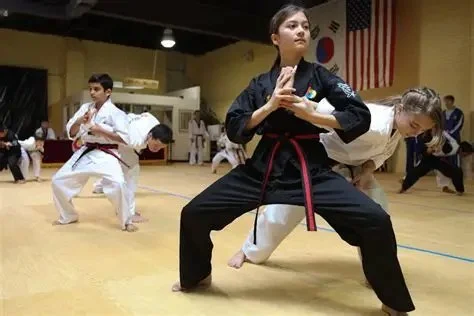
- 1. Understanding Tae Kwon Do for Geneticists
- 2. The Code of Movement and Adaptation
- 3. The Relationship Between Tae Kwon Do and Genetic Adaptation
- 4. How Movement Patterns Can Influence Genetic Research
- 5. Lessons Learned from Tae Kwon Do Applied to Science
1. Understanding Tae Kwon Do for Geneticists
Tae Kwon Do is a dynamic martial art that emphasizes agility, strength, and adaptability. At first glance, it may seem unrelated to the world of genetics. However, there are profound parallels between the principles of movement in martial arts and the concept of genetic evolution. Geneticists can draw valuable lessons from the way Tae Kwon Do practitioners adapt their techniques and strategies to improve performance, which mirrors the processes of genetic adaptation and selection in biological organisms.

CKO Kickboxing Sheepshead Bay / cko kickboxing sheepshead bay brooklyn ny
2615 E 17th St, Brooklyn, NY 11235, USA
2. The Code of Movement and Adaptation
Tae Kwon Do, like all martial arts, has its own code—an intricate set of movements and techniques that require not only physical strength but also mental adaptability. This code is based on a deep understanding of form, timing, and rhythm, which can be compared to genetic expression. In both fields, adaptation plays a critical role. Just as genetic mutations may lead to new traits that improve survival, martial artists must continually adapt their movements and strategies to overcome challenges and improve their technique.
Just as Tae Kwon Do practitioners refine their movements over time, geneticists study the evolutionary process to understand how organisms adapt to changing environments. The constant need for practice, feedback, and refinement in martial arts mirrors the iterative nature of natural selection, where genetic traits are constantly tested and refined over generations.

Paul Prendergast Karate / paul prendergast
Brick TownshipOcean CountyNew Jersey
950 Cedar Bridge Ave, Brick Township, NJ 08723, USA
3. The Relationship Between Tae Kwon Do and Genetic Adaptation
Both Tae Kwon Do and genetics are driven by the concept of adaptation—whether it’s an individual refining their martial art skills or a species evolving to survive in its environment. In Tae Kwon Do, the adaptability of the practitioner is key to mastering the art form, as it requires constant adjustment to new challenges and techniques. Similarly, in genetics, adaptation refers to how organisms change over time in response to environmental pressures.
For geneticists, understanding adaptation in martial arts can offer insights into evolutionary processes. For instance, the way a Tae Kwon Do practitioner fine-tunes their technique based on feedback can be seen as analogous to how a species might develop new traits over time in response to selective pressures. The continuous improvement of form, speed, and technique in martial arts is a practical reflection of how beneficial genetic traits are selected and passed down to future generations.
4. How Movement Patterns Can Influence Genetic Research
Movement patterns in Tae Kwon Do involve a deep understanding of biomechanics—how the body moves, balances, and responds to different forces. This knowledge can inspire geneticists studying how organisms move or behave in certain environments. Just as practitioners learn to control their movements, researchers in genetics study how genetic mutations affect the movement and behaviors of organisms.
One practical example might be studying how genetic mutations influence motor skills, balance, or coordination. By drawing comparisons between the structured movements in martial arts and genetic expression, scientists can gain a better understanding of how specific genetic markers influence the physical abilities and behavior of organisms. This could lead to breakthroughs in areas such as neurology, biomechanics, and genetic therapies.
5. Lessons Learned from Tae Kwon Do Applied to Science
Tae Kwon Do teaches valuable lessons in perseverance, resilience, and adaptability. These same principles apply to the work done in genetic research. The discipline of Tae Kwon Do encourages practitioners to push through limitations, much as geneticists must push through the challenges of studying complex genetic codes. Additionally, the concept of constant improvement and feedback in martial arts is directly applicable to the iterative nature of scientific discovery.
Whether in martial arts or genetics, the pursuit of mastery involves understanding the relationship between structure and function, learning from mistakes, and continuously refining one's approach. Just as martial artists evolve and improve, geneticists strive to refine their understanding of the natural world and adapt their methods to gain new insights.
For those interested in applying the principles of Tae Kwon Do to both personal development and scientific research, consider visiting Jeuns TKD Hub for more resources and training options.
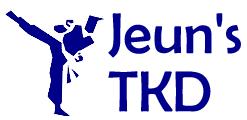
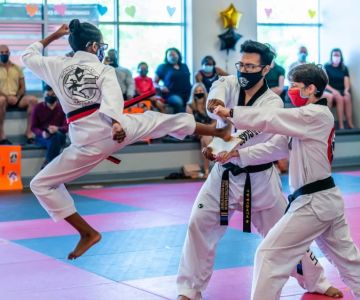
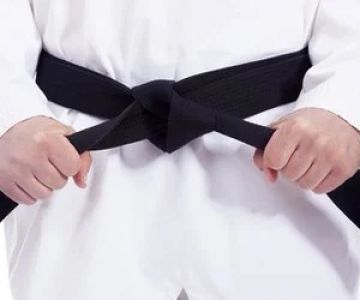
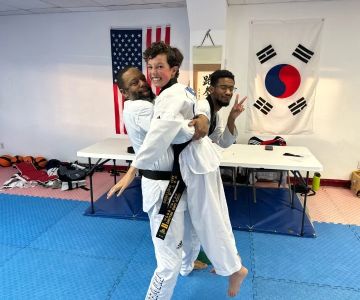
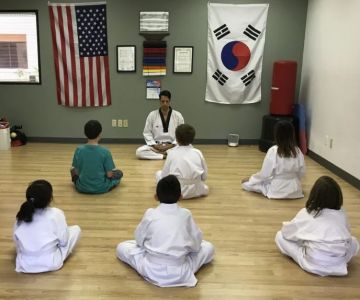
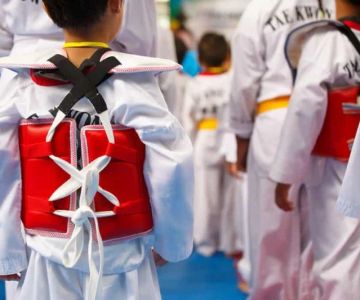
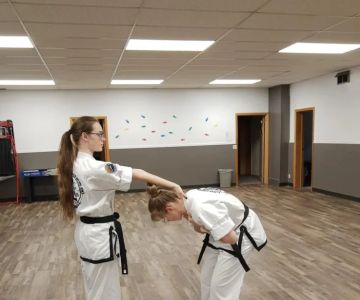
 Byram Karate Academy5.0 (1 reviews)
Byram Karate Academy5.0 (1 reviews)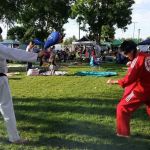 Tiger Lee's World Class Tae Kwon Do5.0 (29 reviews)
Tiger Lee's World Class Tae Kwon Do5.0 (29 reviews) Kenny's Karate School3.0 (9 reviews)
Kenny's Karate School3.0 (9 reviews)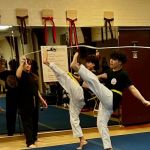 Corona Taekwondo Club5.0 (6 reviews)
Corona Taekwondo Club5.0 (6 reviews)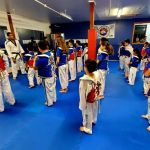 Team Raposa East Hanover Martial Arts / Black-K5.0 (9 reviews)
Team Raposa East Hanover Martial Arts / Black-K5.0 (9 reviews) Fire and Water Martial Arts4.0 (23 reviews)
Fire and Water Martial Arts4.0 (23 reviews)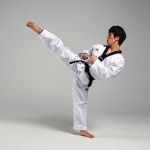 How to Execute a Jumping Roundhouse Kick to the Head
How to Execute a Jumping Roundhouse Kick to the Head How to Execute a Double Kick Combination in Sparring
How to Execute a Double Kick Combination in Sparring How to Perform a Flawless Axe Kick: A Step-by-Step Guide
How to Perform a Flawless Axe Kick: A Step-by-Step Guide DIY Tae Kwon Do Training Equipment for Home Practice
DIY Tae Kwon Do Training Equipment for Home Practice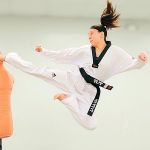 How to Increase Your Vertical Jump for Tae Kwon Do Flying Kicks
How to Increase Your Vertical Jump for Tae Kwon Do Flying Kicks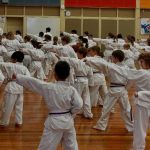 The History of the Tae Kwon Do Peace Corps
The History of the Tae Kwon Do Peace Corps